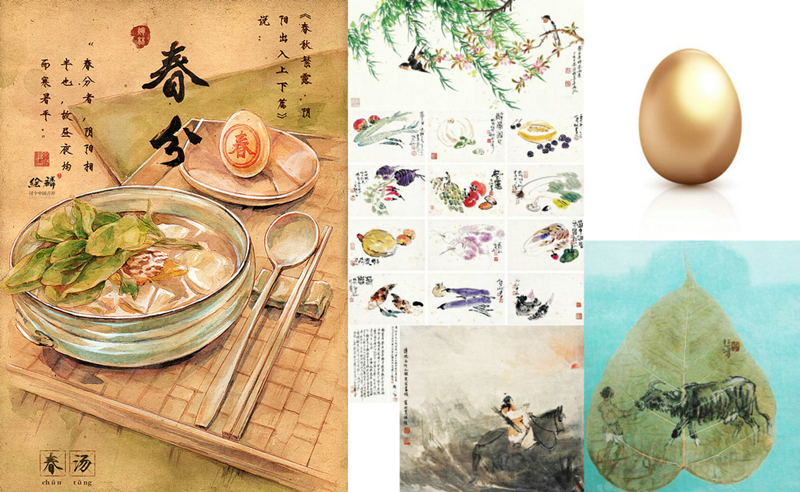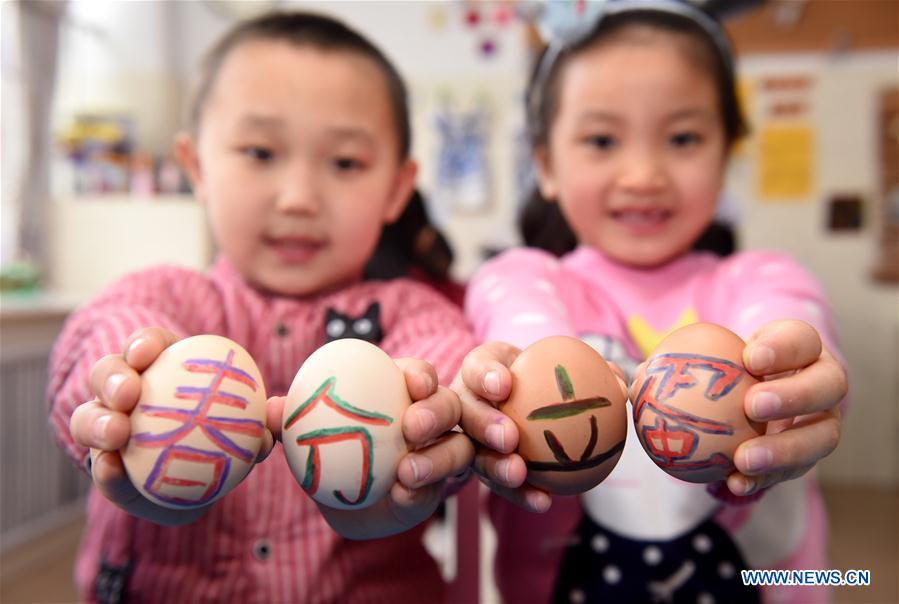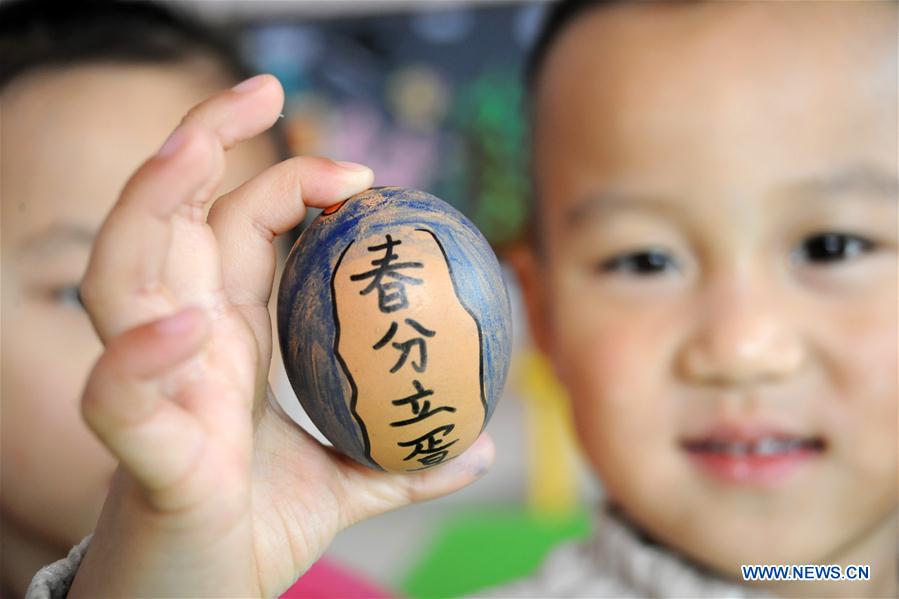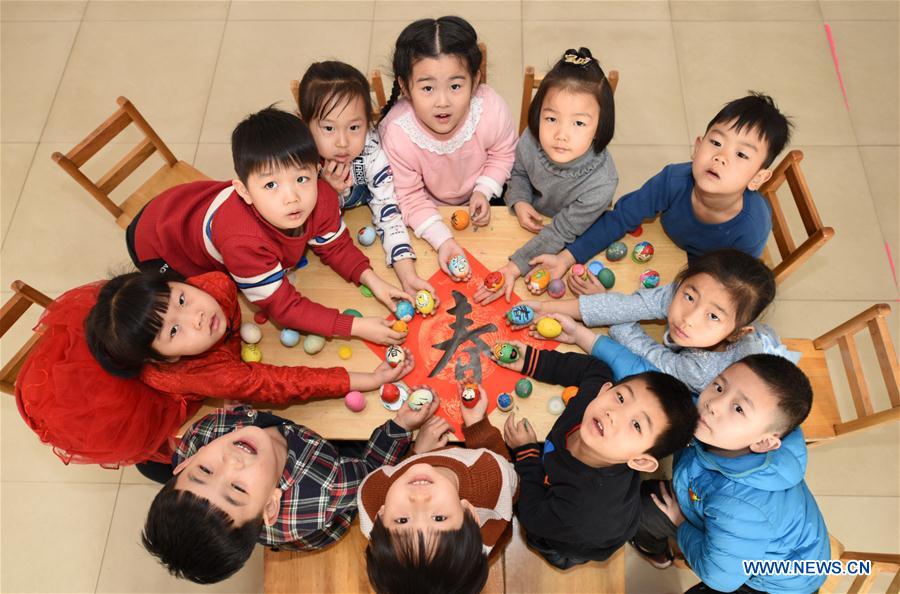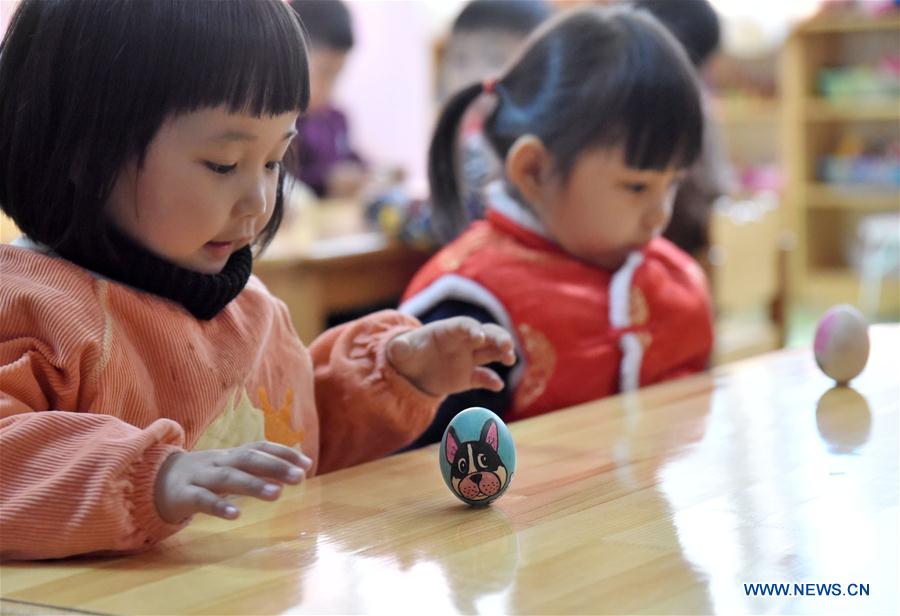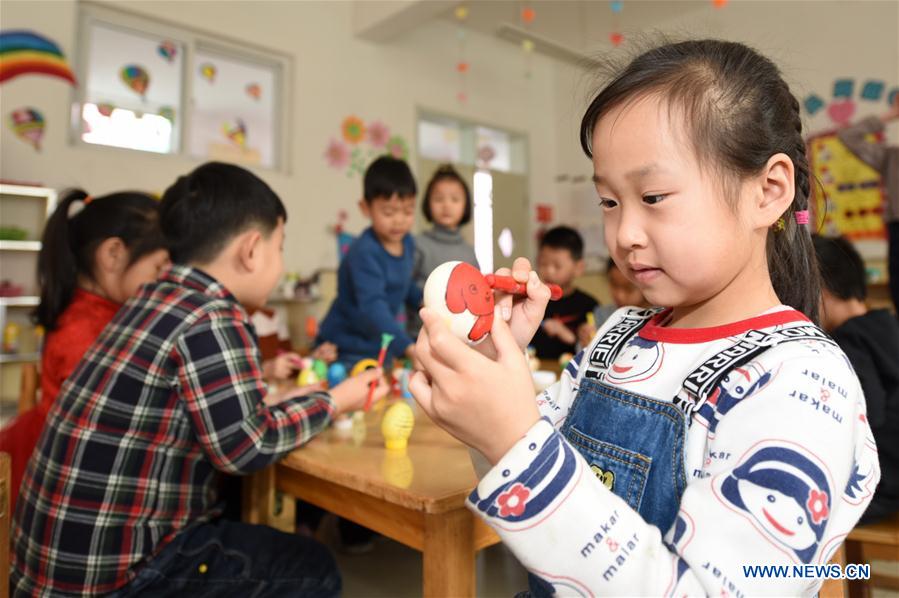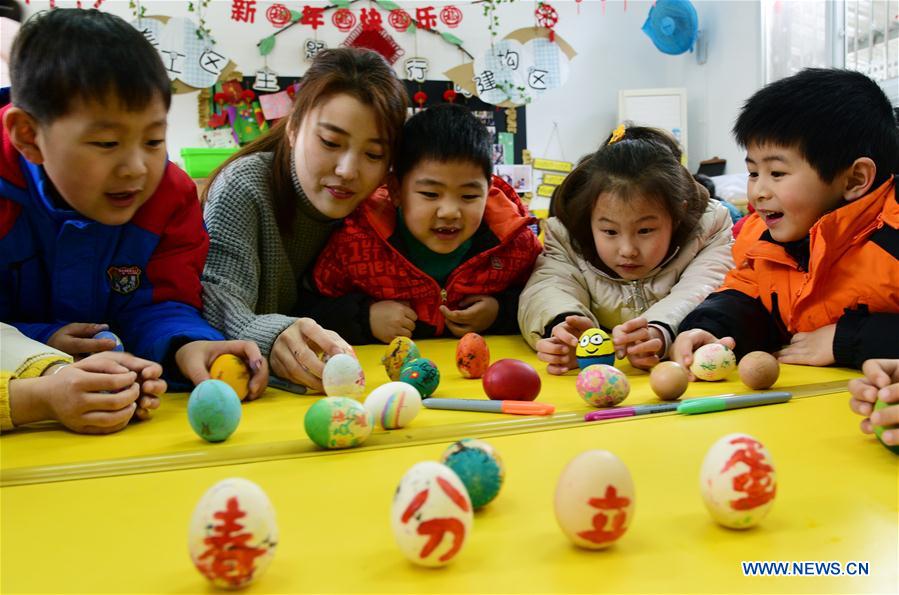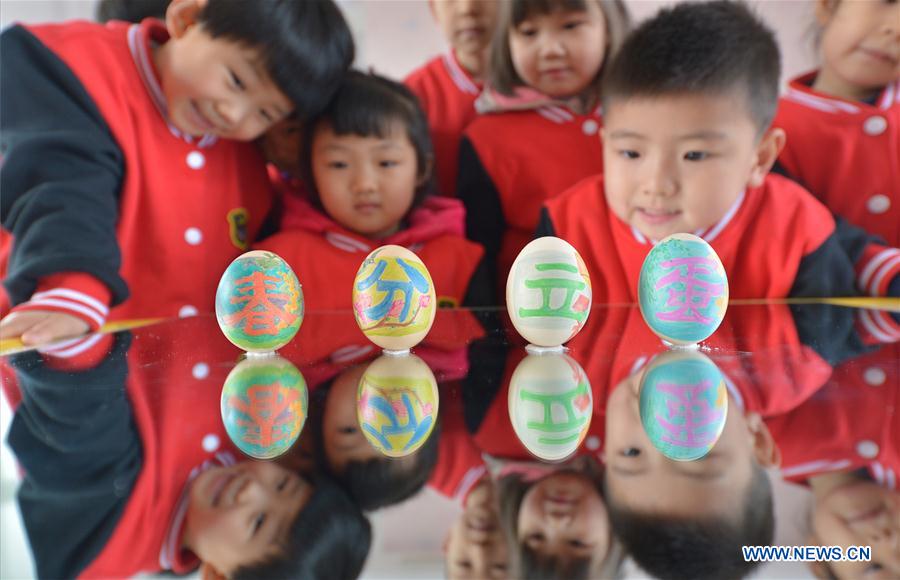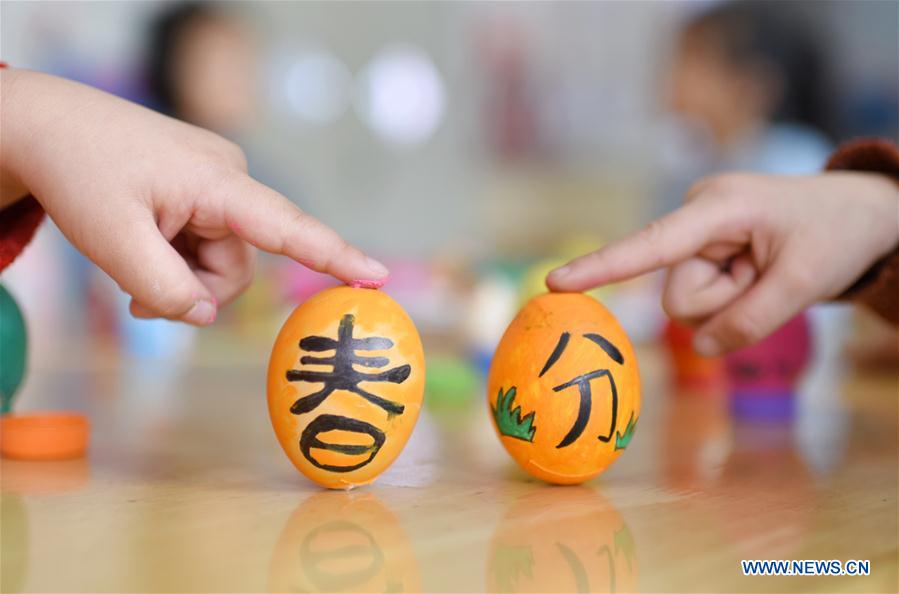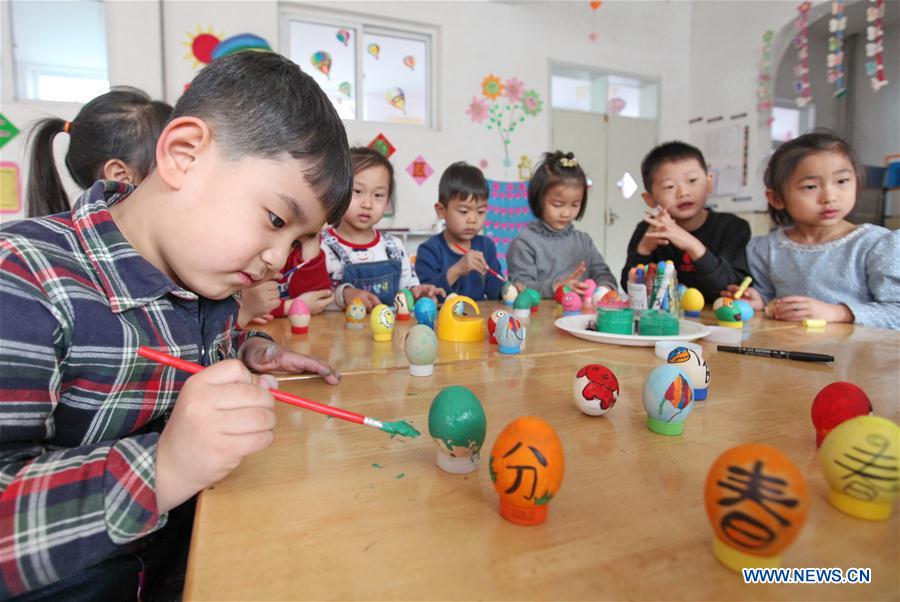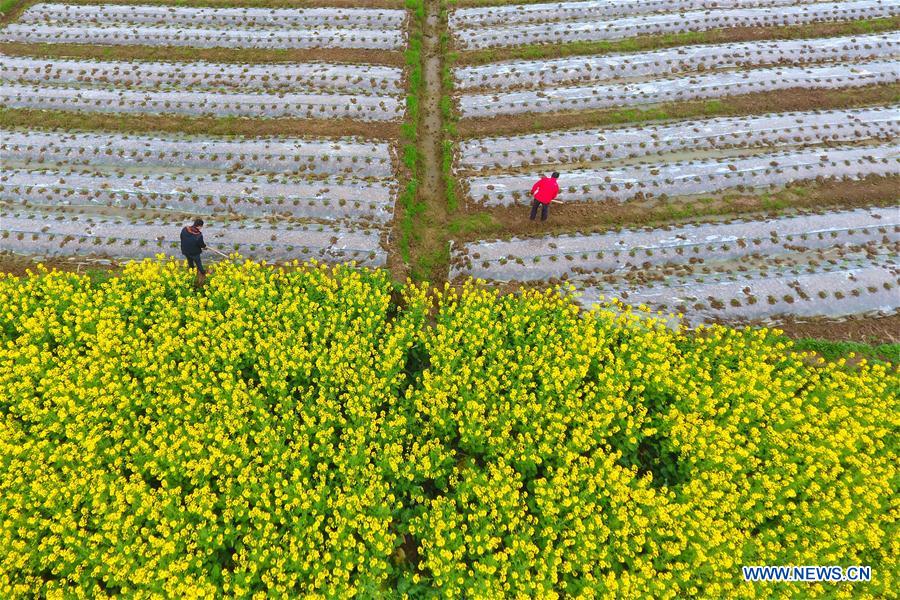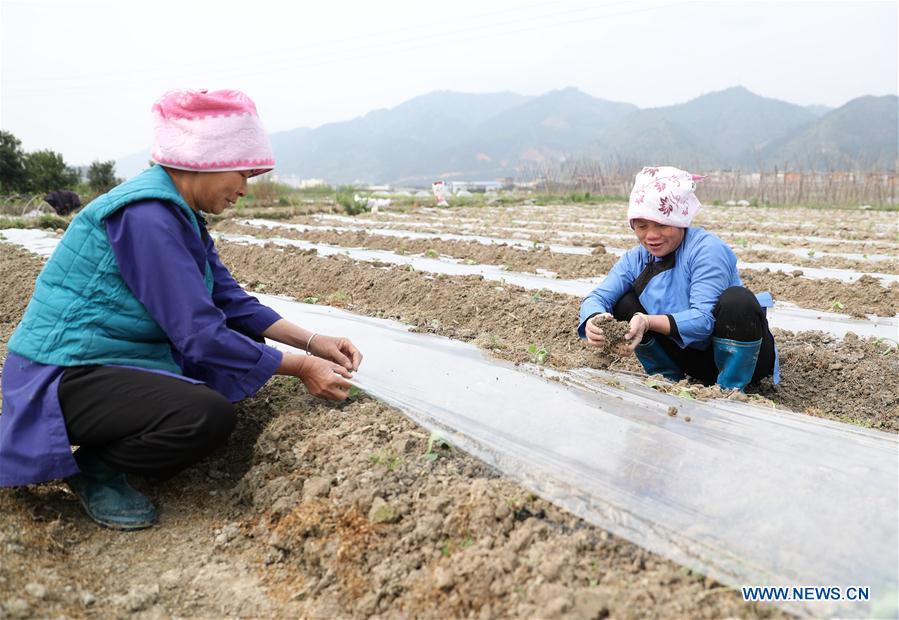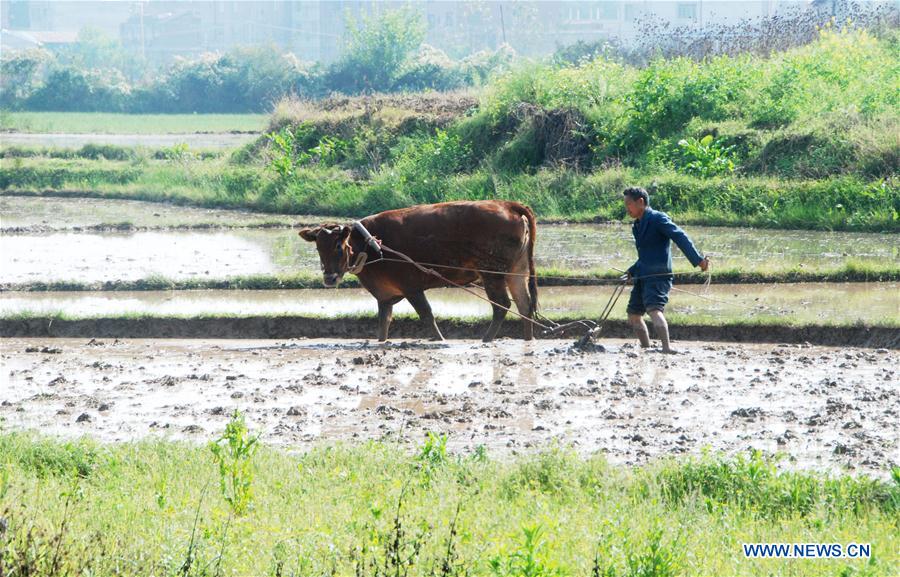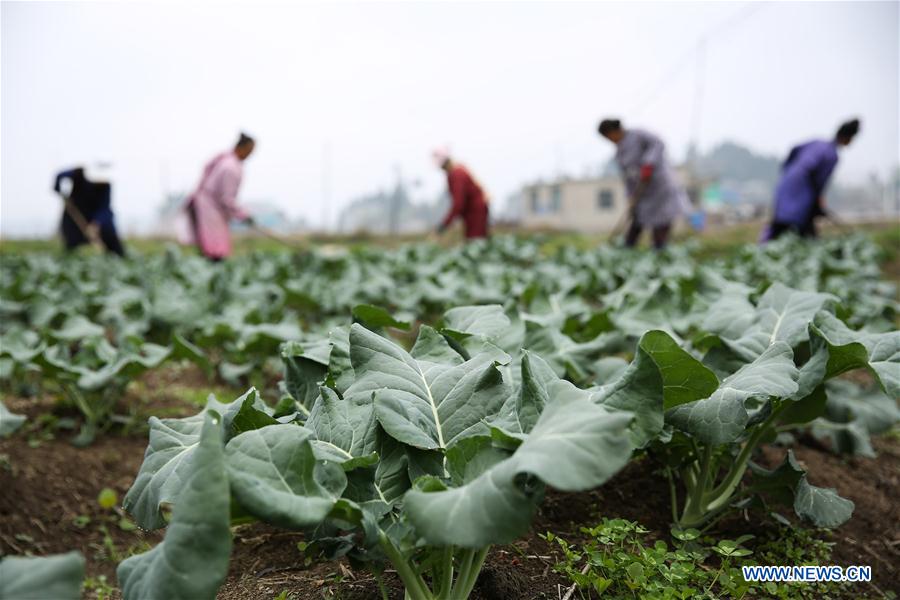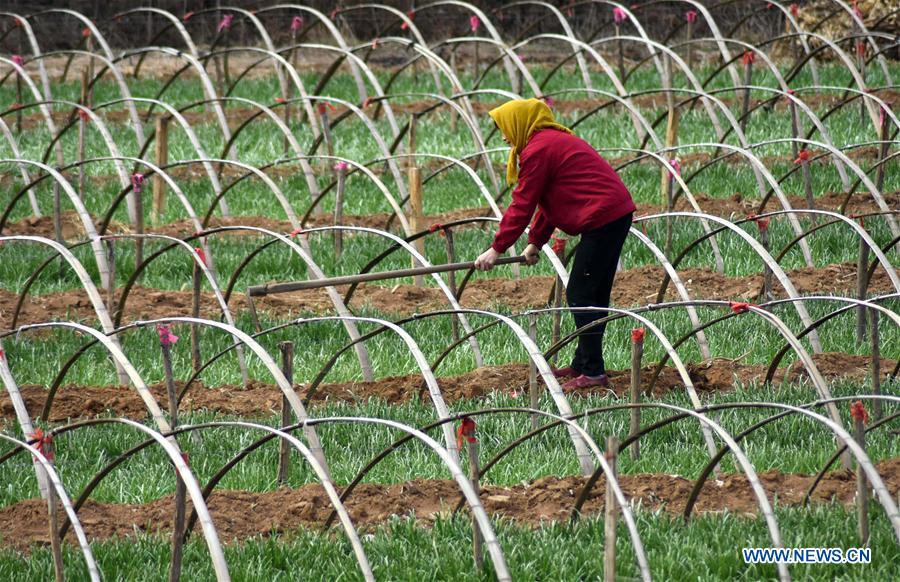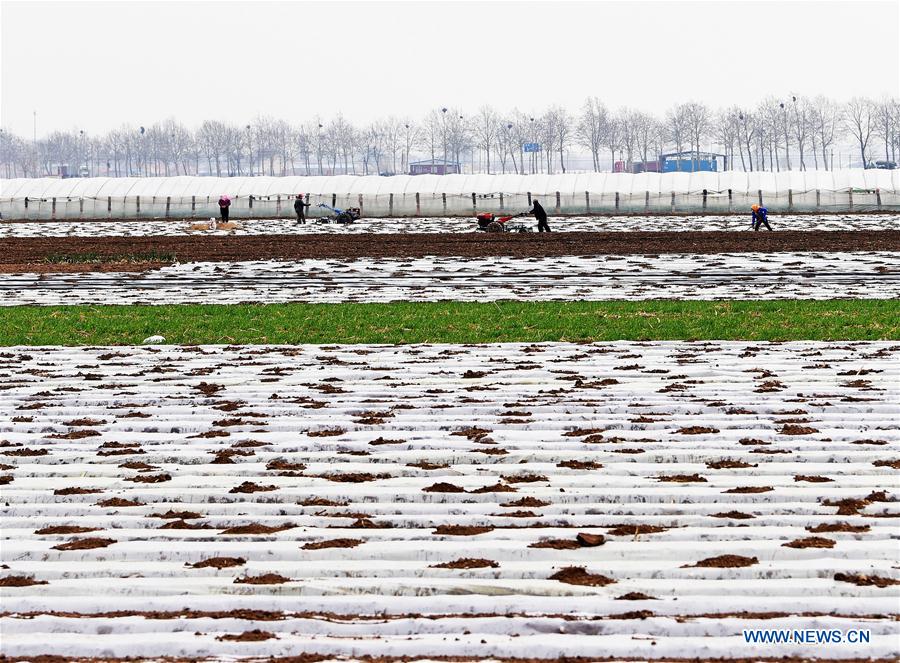As a popular young Chinese artist, Li combined the customs during a solar term and the associated food and created a series of illustrations named "24 Solar Terms and Chinese Delicacies". [Photo provided to chinadaily.com.cn]
The traditional Chinese lunar calendar divides a year into 24 solar terms. The Spring Equinox (Chinese: 春分), as the fourth term of the year starts on March 20 and ends on April 3 this year.
The Spring Equinox signals the equal length of the day and night time. On the day of the Spring Equinox, sun is directly above the equator. After the equinox, the sun moves northwards, resulting in gradually longer day time in the Northern Hemisphere and longer night in the Southern Hemisphere.
Here are 5 things you may not know about the Spring Equinox.
Swallows fly north
The ancient Chinese people divided the fifteen days of the Spring Equinox into three "hou's," or five-day parts. As the old saying goes, swallows fly back to the North in the firsthou; thunder cracks the sky in the secondhou; lightning occurs frequently in the third hou, which vividly reveals the climate feature during the Spring Equinox.
Egg-standing games
Standing an egg upright is a popular game across the country during the Spring Equinox. It is an old custom that dates back to 4,000 years ago. People practice this tradition to celebrate the coming of spring. It is believed that if someone can make the egg stand, he will have good luck in the future.
Some believe that the Spring Equinox is the best time to practice this game because on this day the axis of the earth is relatively balanced against the orbital plane of the earth’s rotation around the sun, which makes it easier to erect an egg.
Eating spring vegetables
Eating spring vegetables during the Spring Equinox is a commonly practiced custom in many regions of China. 'Spring vegetables' refers to seasonal vegetables that differ from place to place. The ancient teachings in the Chinese classic,Huangdi Neijing, suggests that people eat seasonal foods to help preserve health and bring good luck.
Sacrifice to the Sun god
During the Spring Equinox, an old traditional practiced by Beijing locals is offering sacrifices to the Sun god. This tradition is called "Zhonghe Festival". The "Sun Cake", a round cake made from wheat and sugar, serves as the main offering.
In the Ming Dynasty (1368-1644) and Qing Dynasty (1636—1912), the imperial family held this ritual in Ritan park every Spring Equinox. The Ritan park gradually became a common place for public recreation. However, the practice still exists among the public.
Reward farm cattle
This practice is popular in the southern area of the lower reaches of the Yangtze River. As the Spring Equinox comes, farm work starts and both the farmers and the cattle start to become busy. Farmers will reward cattle with sticky rice balls to express their gratefulness. Meanwhile, people will also make sacrifice to birds, to thank them for bringing signals for farm work and to ask them not to eat grains later in the year.
Children show eggs painted with Chinese characters at a kindergarten in Xinle, north China's Hebei Province, March 21, 2018, also the day of "Chunfen". Chunfen, which literally means Spring Equinox or Vernal Equinox, falls on the day when the sun is exactly at the celestial latitude of zero degrees. (Xinhua/Jia Minjie)
Children show eggs painted with Chinese characters at a kindergarten in Yantai, east China's Shandong Province, March 21, 2018, also the day of "Chunfen". Chunfen, which literally means Spring Equinox or Vernal Equinox, falls on the day when the sun is exactly at the celestial latitude of zero degrees. (Xinhua/Shen Jizhong)
Children show eggs painted with colors at a kindergarten in Zaoqiang County, north China's Hebei Province, March 21, 2018, also the day of "Chunfen". Chunfen, which literally means Spring Equinox or Vernal Equinox, falls on the day when the sun is exactly at the celestial latitude of zero degrees. (Xinhua/Zhu Xudong)
Children plays a game to stand eggs on end at a kindergarten in Handan, north China's Hebei Province, March 21, 2018, also the day of "Chunfen". Chunfen, which literally means Spring Equinox or Vernal Equinox, falls on the day when the sun is exactly at the celestial latitude of zero degrees. (Xinhua/Hao Qunying)
Children play a game to stand eggs on end at a kindergarten in Jishou, central China's Hunan Province, March 21, 2018, also the day of "Chunfen". Chunfen, which literally means Spring Equinox or Vernal Equinox, falls on the day when the sun is exactly at the celestial latitude of zero degrees. (Xinhua/Peng Biao)
Children draw on eggs at a kindergarten in Zaoqiang County, north China's Hebei Province, March 21, 2018, also the day of "Chunfen". Chunfen, which literally means Spring Equinox or Vernal Equinox, falls on the day when the sun is exactly at the celestial latitude of zero degrees. (Xinhua/Zhu Xudong)
Children play a game to stand eggs on end at a kindergarten in Zhenjiang, east China's Jiangsu Province, March 21, 2018, also the day of "Chunfen". Chunfen, which literally means Spring Equinox or Vernal Equinox, falls on the day when the sun is exactly at the celestial latitude of zero degrees. (Xinhua/Shi Yucheng)
Children play a game to stand eggs on end at a kindergarten in Handan, north China's Hebei Province, March 21, 2018, also the day of "Chunfen". Chunfen, which literally means Spring Equinox or Vernal Equinox, falls on the day when the sun is exactly at the celestial latitude of zero degrees. (Xinhua/Dai Guoxiang)
Children play a game to stand eggs on end at a kindergarten in Zaoqiang County, north China's Hebei Province, March 21, 2018, also the day of "Chunfen". Chunfen, which literally means Spring Equinox or Vernal Equinox, falls on the day when the sun is exactly at the celestial latitude of zero degrees. (Xinhua/Zhu Xudong)
Children draw on eggs at a kindergarten in Zaoqiang County, north China's Hebei Province, March 21, 2018, also the day of "Chunfen". Chunfen, which literally means Spring Equinox or Vernal Equinox, falls on the day when the sun is exactly at the celestial latitude of zero degrees. (Xinhua/Zhu Xudong)
Children play a game to stand eggs on end at a kindergarten in Handan, north China's Hebei Province, March 21, 2018, also the day of "Chunfen". Chunfen, which literally means Spring Equinox or Vernal Equinox, falls on the day when the sun is exactly at the celestial latitude of zero degrees. (Xinhua/Hao Qunying)
Villagers work in the fields at Diping Village of Zimenqiao Township in Shuangfeng County, central China's Hunan Province, March 21, 2018, also the day of "Chunfen". Chunfen, which literally means Spring Equinox or Vernal Equinox, falls on the day when the sun is exactly at the celestial latitude of zero degrees. (Xinhua/Li Jianxin)
Farmers plant vegetables at fields in Guzhou Township of Rongjiang County, southwest China's Guizhou Province, March 21, 2018, also the day of "Chunfen". Chunfen, which literally means Spring Equinox or Vernal Equinox, falls on the day when the sun is exactly at the celestial latitude of zero degrees. (Xinhua/Yang Chengli)
Farmers work at a modern agricultural garden in Haian County of Nantong City, east China's Jiangsu Province, March 21, 2018, also the day of "Chunfen". Chunfen, which literally means Spring Equinox or Vernal Equinox, falls on the day when the sun is exactly at the celestial latitude of zero degrees. (Xinhua/Xu Jingbai)
A farmer works in the field at Lugang Village of E'tang Township in Pinggui District of Hezhou City, south China's Guangxi Zhuang Autonomous Region, March 21, 2018, also the day of "Chunfen". Chunfen, which literally means Spring Equinox or Vernal Equinox, falls on the day when the sun is exactly at the celestial latitude of zero degrees. (Xinhua/Liao Zuping)
Farmers work at a vegetable base in Mazhai Village of Longquan Township in Danzhai County, southwest China's Guizhou Province, March 21, 2018, also the day of "Chunfen". Chunfen, which literally means Spring Equinox or Vernal Equinox, falls on the day when the sun is exactly at the celestial latitude of zero degrees. (Xinhua/Huang Xiaohai)
A farmer works in the fields at Miaoshan Village of Yuezhuang Township in Yiyuan County, east China's Shandong Province, March 21, 2018, also the day of "Chunfen". Chunfen, which literally means Spring Equinox or Vernal Equinox, falls on the day when the sun is exactly at the celestial latitude of zero degrees. (Xinhua/Zhao Dongshan)
A farmer works in the fields at Hebei Village of Shuangxi Township in Jing'an County, east China's Jiangxi Province, March 21, 2018, also the day of "Chunfen". Chunfen, which literally means Spring Equinox or Vernal Equinox, falls on the day when the sun is exactly at the celestial latitude of zero degrees. (Xinhua/Xu Zhongting)
A farmer works in the field at Longteng Village of Xiaochang'an Township in Hechi City, south China's Guangxi Zhuang Autonomous Region, March 21, 2018, also the day of "Chunfen". Chunfen, which literally means Spring Equinox or Vernal Equinox, falls on the day when the sun is exactly at the celestial latitude of zero degrees. (Xinhua/Meng Zengshi)
Farmers work in the fields at Xifole Village of Jiaoxi Township in Jiaozhou, east China's Shandong Province, March 21, 2018, also the day of "Chunfen". Chunfen, which literally means Spring Equinox or Vernal Equinox, falls on the day when the sun is exactly at the celestial latitude of zero degrees. (Xinhua/Wang Zhaomai)

A farmer works in the field at Shanting District in Zaozhuang City, east China's Shandong Province, March 21, 2018, also the day of "Chunfen". Chunfen, which literally means Spring Equinox or Vernal Equinox, falls on the day when the sun is exactly at the celestial latitude of zero degrees. (Xinhua/Zhang Qiang)

















